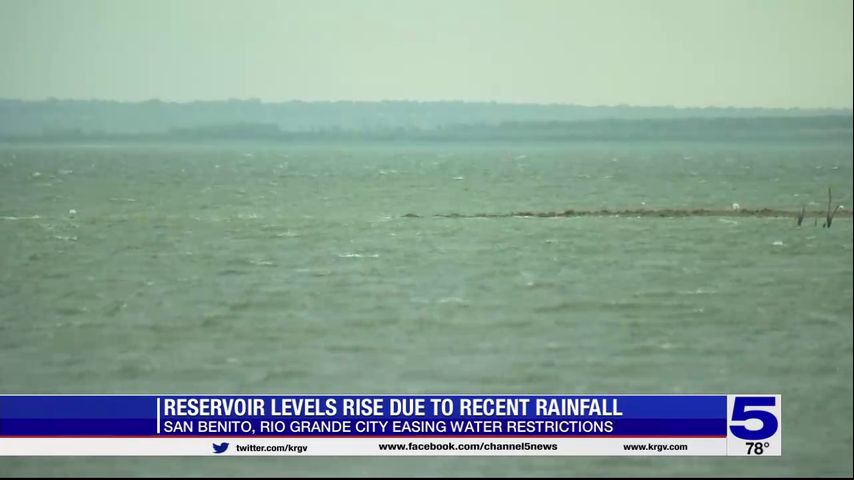Reservoir levels rise due to rainfall in Mexico, prompting Valley cities to ease water restrictions
At least two Valley cities are relaxing their water restrictions as water availability in our reservoirs climb.
Together, the combined capacity at Falcon Lake and Amistad is at 26.2 percent. When that number hits 25 or below, water restrictions take effect. Because the combined capacity is above that number, some cities are relaxing restrictions, including San Benito and Rio Grande City.
"Per city ordinance, we are now out of stage 2 mandatory water conservation into stage one voluntary water conservation," said David Favila, a spokesperson for the city of San Benito.
Over the summer, the reservoir levels hit a 20-year low. That number gradually recharged after rain in the watershed.
“The reservoirs at Amistad and Falcon are shooting up,” said Adrian Cortez, a hydrologist with the International Boundary and Water Commission. “They’ve gone up considerably over the past several weeks and we continue to expect that to rise.”
It started with rain on the eastern side of the Sierra Madre Occidental Mountains in western Mexico, which then fed into the Rio Conchos in Mexico, and ultimately into the Rio Grande in West Texas.
The Rio Grande in that region is full once again and the water will flow downstream to the Valley.
But what will happen this fall and into next year?
"The resumption of higher evaporation during late winter into early to mid-spring due to warmer and drier forecast temperatures, as well as below-average rainfall, is likely to see the levels begin to decrease slowly at that point in time," said Barry Goldsmith, a meteorologist with the National Weather Service.
Goldsmith says it’s likely that reservoir levels will decrease in the coming months. Looking forward, the IBWC is cautiously optimistic.
“Things have improved,” Cortez said. “I'm not going to say, ‘The drought is over; it's resolved.’ International reservoirs are still low and they're still going to be lower than they were in the past."
The agency and officials in the Valley are still asking the public to conserve.
“If there's ways to save water, do it,” Favila said. “For instance, don't water during the hottest times of the day. Don't let water run into the streets."





